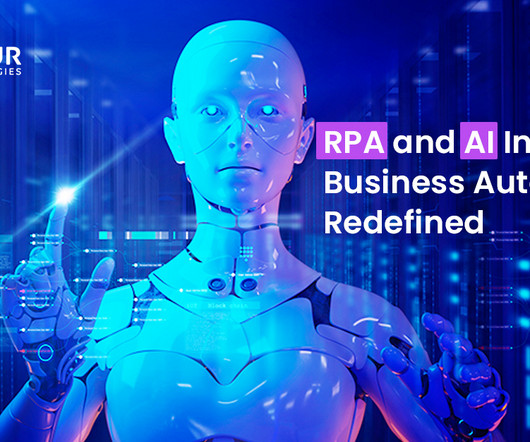RPA and AI In Action: Business Automation Redefined
Amzur
MAY 9, 2024
In today’s hyper-competitive landscape, streamlining operations and maximizing efficiency are paramount for CIOs. Both RPA and AI technologies benefit businesses, including reduced operational costs and improved accuracy, and they can free up human employees to focus on more strategic tasks.














Let's personalize your content